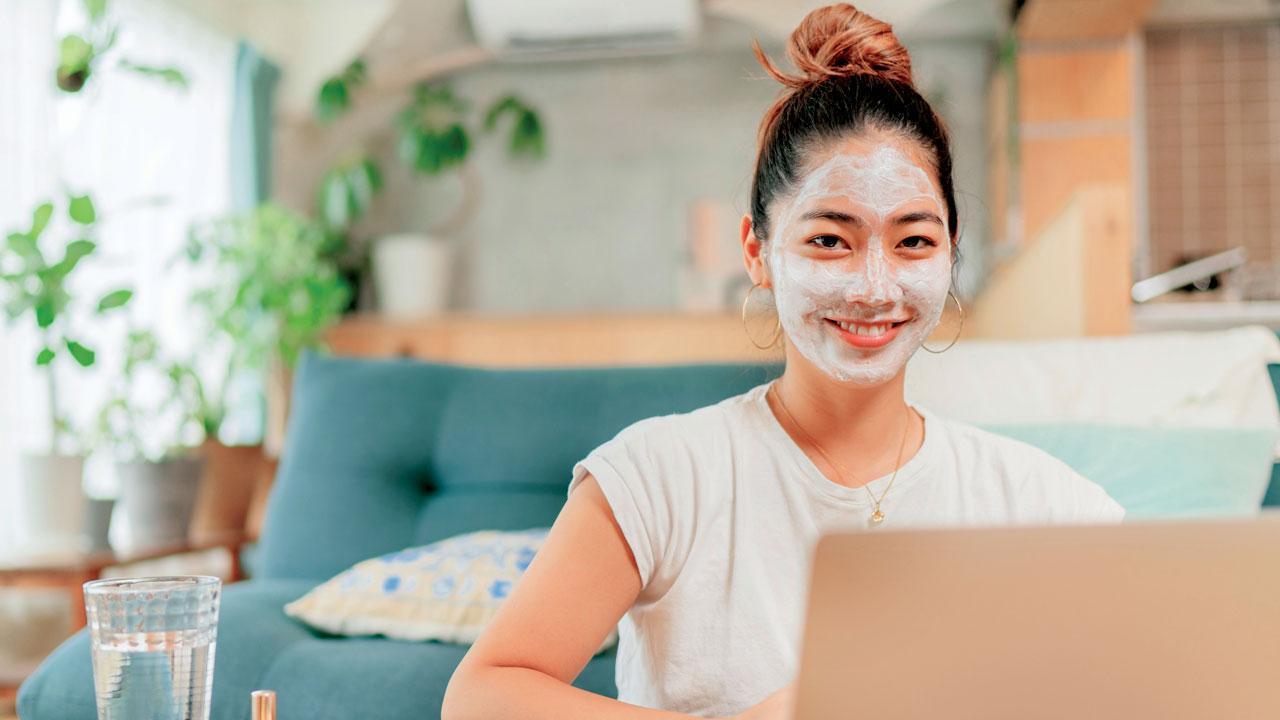Increased exposure to blue light from screens can prematurely age your skin. Heres how to prevent it

Limit your screen exposure to prevent photo-ageing. Representation pic
If you thought staying indoors all day was enough to protect your skin from the premature ageing caused by UVA and UVB rays, well, think again — skincare experts have added another culprit to the mix. “Blue light or high energy visible light (HEV) is a short wavelength violet-blue light that is emitted by various screen devices such as mobile phones and artificial light sources such as LED bulbs. Blue light penetrates the skin much deeper than ultraviolet rays and triggers pigmentation, photosensitivity, and premature aging,” explains Dr Niketa Sonavane, a dermatologist and founder of Ambrosia Aesthetics.
Dr Niketa Sonawane
She adds that the skin damage caused by three hours of HEV exposure is comparable to an hour of sun exposure without sunscreen. Here’s how you can protect your skin from blue-light damage:
>> Limit exposure: In addition to reducing your screen exposure, you could also cover your phone and laptop with a blue light shield. Certain smartphones have a night mode setting that disables blue light in favour of yellow light. You could also reduce the screen brightness, adds Dr Sonawane.
>> Consume more antioxidants: Include an antioxidant serum such as vitamin C in your skin care routine to combat the oxidative stress caused by the blue light. Increase your intake of antioxidant-rich food such as amla, pomegranate, kokum, carrots, and beets. You can also ask your dermatologist to suggest antioxidant supplements containing grape seed extract, astaxanthin, resveratrol and fern extract.
>> Use sunscreen: Apply sunscreen containing zinc oxide while using your screen devices. Or better still, pick a sunscreen which blocks HEV light in addition to UVA and UVB rays of the sun, says Dr Sonawane.
>> Promote healing: Include niacinamide serums and retinol creams in your nightly skin routine to support daily skin repair.
 Subscribe today by clicking the link and stay updated with the latest news!" Click here!
Subscribe today by clicking the link and stay updated with the latest news!" Click here!









